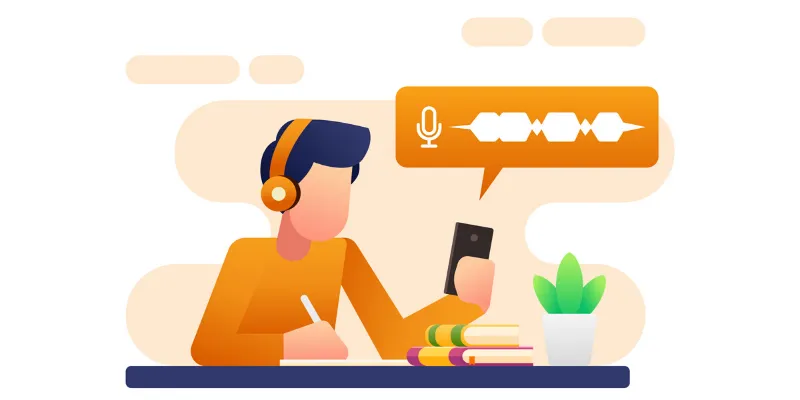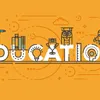How innovations in voice technology are reshaping education
Voice technology in education coupled with emerging technologies like AI will set high educational goals and have a spectacular potential of growth and improvement for the new-age student.

Mid-March, our country took a bold step of going into a countrywide lockdown to stop the spread of the deadly coronavirus. Suddenly, students all over the country were locked at home and started online school/tuition classes or home schooling.
In no time, students, schools, and parents adapted to this new form of learning experience, facilitated by internet, audio, voice, and video technology.
As we are moving towards the 4th industrial age, an age driven by technology, evolution in the education space which includes Artificial Intelligence, Machine Learning, Virtual Learning, MOOCS, the widespread use of mobile devices, the introduction of Alexa in classrooms etc., technology is creating challenges and opportunities in the education space.
By 2025, it is predicted that two billion of the global population will be the ‘Alpha’ generation who will greatly benefit from emerging technology solutions.
One of the major positive impacts of coronavirus pandemic is the confidence it has given people in adopting technology tools which have made lives easier and has made impossible things possible in no time.
Voice technology in education
Students around us these days are surrounded and equipped with smartphones, computers, tablets, etc. and use them in numerous contexts in their daily lives. In any device, whether it is a mobile, tablet, or a computer, voice is a major part and source of engagement for the students which has changed the way they understand and study in today’s time.
It has become one of the most important tools for fulfilling the goal of universalisation of access to education anywhere across the globe and also in reaching out to the visually challenged.
We have just started with voice technology in education coupled with emerging technologies like AI which will set educational goals and will have a spectacular potential of growth and improvement for the new-age student’s education.
ALSO READ

Voice assistance enters school classrooms
According to a special Education Week report, voice-activated devices like Google Home and Amazon Alexa have already entered the school classrooms. Through their power of voice, these devices have boosted engagement among students, schools, and parents by providing a convenient way of interacting and accessing school-related and other useful content.
Students are usually curious and test any new device by asking questions and this helps them gain a better understanding of facts and opinions. They ask questions and slowly understand how these digital assistance works and in which areas they can be helpful to enhance their awareness, understanding, and knowledge.
In the coming years, we will see how voice assistance will help students in learning spellings and multiplication tables which were once learnt through books and teacher’s involvement.
Voice assistance promotes personalised learning
Voice assistance supports various skills which include quizzes and trivia contests which have specific functions. These can be adapted for classroom learning activities.
The most important feature of voice assistance is that it can be customised and trained according to one’s need enabling students to be creative with their requests and queries and reinvent their own personalised activity.
In future, we can expect to have enough microphones through which voice assistance will be able to listen to and help each student with personalised answers and understanding of any topic for which the students were majorly dependent on their teachers.
Introvert and shy students will benefit from voice assistance as they will be able to freely clear their factual doubts without the fear of being judged by other students. Personalised learning will encourage students to become independent learners.
Voice assistance driving classroom management
Besides learning, voice assistance can also be used in classroom management. It can be used by teachers for setting reminders, for giving instructions to the students, and answering their general queries which are usually answered by the teachers. They can also assist the teachers and school management by giving them updates on their tests schedule, assignments, grades etc which is the teacher’s responsibility in the current scenario.
With the help of voice assistance in classrooms, teachers will be able to focus on enhancing their creativity and teaching skills as most of the mundane questions, definitions, and announcements will be taken care of by the voice assistant. This will enable teachers to spend their time and energy in upskilling themselves and focus on innovative teaching methods.
Educational podcasting
‘Podcast’ is a word originated from iPod and broadcasting. The term and the concept of digital communication and information sharing with the masses has taken the youth by a storm all over the world. Voice technology being very accessible and convenient plays a major role in making this successful and useful.
Students can go hands-free and study on the go. Teachers and educators can contribute their knowledge, learnings and even school learning material through personalised podcasts according to the student’s need who can easily access it anytime and anywhere.
Podcasts are already being seen as a learning object for the students and very soon one will see teachers being given training on skills like scriptwriting, tips on audio and video recording, the invention of podcast studios and much more. Teachers will soon be oriented towards core concepts of ‘Podagogy’ to build upon the pedagogy or andragogy that they may already be following or are aware of.
‘Podagogy’ follows information sharing in small chunks so one can expect the podcasts to be short and crisp. This will give teachers a means of empowerment to share anything worthwhile owing to very little barriers of cost or technology involved in educational podcasting.
Artificial teaching assistance in virtual classrooms
Very soon school administrations will have access to artificial teaching assistance which already has Natural Language Processing (NLP) built-in. It can be easily set up with virtual classrooms, where this assistance will be able to answer some basic questions which are expected to be asked.
NLP will take the lead and allow the system to understand the actual meaning of what is being asked by the user student.
Voice technology has made the students learn and grasp the learning material in an interactive manner and has made their learning fun and interesting. Emerging technology along with the help of teachers, schools, and parents will create an immersive learning experience for the students in the Indian education space.
Edited by Javed Gaihlot
(Disclaimer: The views and opinions expressed in this article are those of the author and do not necessarily reflect the views of YourStory.)








